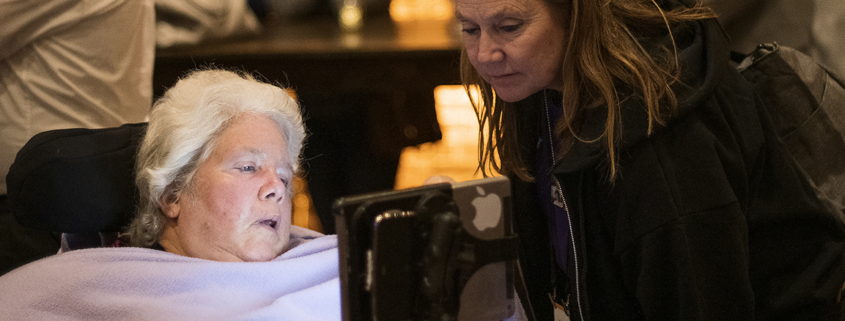ISSUE
People with intellectual and/or developmental disabilities often do not have the services, supports, and personal relationships they want and need to lead a full life in the community. They may encounter attitudinal, public policy, service system, and other barriers that keep them from choosing where they live and work. Moreover, they often lack opportunities to participate in and contribute to their communities.
POSITION
People with intellectual and/or developmental disabilities must have the opportunity to lead lives that offer them a meaningful quality of life. A meaningful quality of life exists for them when they:
- Receive, at all stages of their lives, the support, encouragement, opportunity, and resources to explore and define how they want to live and who is in their lives;
- Choose the services and supports they need and receive them anywhere in the country without waiting for an uncertain and extended length of time;
- Direct the services and supports they receive;
- Lead a life enriched by friends and family and have opportunities for intimate relationships based on informed consent and responsibilities;
- Experience life-long learning and develop decision making skills;
- Work in a job that is meaningful to them;
- Enjoy the same rights and respect for their dignity and privacy, as do people without disabilities;
- Are fully informed about options, understand the risks associated with the options, and are allowed to take risks inherent in the options they choose; and
- Receive support to live in a healthy and safe environment.
Policies, regulations and funding must promote these desired outcomes. In addition, public agencies, private organizations, and individuals providing services and supports must:
- Be accountable and responsible to individuals and their families;
- Continuously improve their efforts to support individuals;
- Be recognized when they make major contributions to the quality of life of individuals;
- Be replaced when they fail to defend or protect the people they serve or fail to enhance the quality of their lives;
- Participate in ongoing monitoring that is independent of the service provider; and
- Ensure training that will lead to desired outcomes and the satisfaction of the people served and their families.
Rev’d 2021
Joint statement with the American Association on Intellectual and Developmental Disabilities (AAIDD).
1Intellectual Disability (ID) is a lifelong condition where significant limitations in both intellectual functioning and adaptive behavior emerge during the developmental period (before adulthood).
Developmental Disabilities (DD), first defined in 1975 federal legislation now known as “The DD Act”, are a group of lifelong conditions that emerge during the developmental period and result in some level of functional limitation in learning, language, communication, cognition, behavior, socialization, or mobility.
The most common DD conditions are intellectual disability, Down syndrome, autism, cerebral palsy, spina bifida, fetal alcohol syndrome, and fragile X syndrome.
The acronym “IDD” is used to describe a group that includes either people with both ID and another DD or a group that includes people with ID or another DD. The supports that people with IDD need to meet their goals vary in intensity from intermittent to pervasive.








